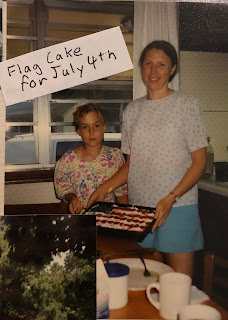When do the honeymoon feelings end? The time differs for every couple. I can't pinpoint when they ended for me, but I can say that I have reached the point where love is a commitment as much as a feeling. I love my husband, as I said I always would, but sometimes I have to work at the feelings part.
I am accountable for loving my husband whether I feel in love or not. When the feelings are there, though, it makes the loving actions easier. To that end, I have started monitoring things that help me feel love towards my husband, because sometimes I need to intentionally do them.
Recall. I have lists everywhere of things I appreciate about my husband. (I have heard this idea from both Gary Chapman and Gary Smalley in their books and podcasts, but don't have specific references.) I review these lists often, and they help me remember why I feel in love.
Reminisce. Looking back at photos from our dating and engagement period gives me the butterflies. I always feel special when my husband tells others our dating story. Sometimes I go and re-read the stories we wrote for our wedding website (which a friend printed and posted in a shadow box for us).
Relate. A lot of times in marriage, we just do business. We have bills to pay, laundry to fold, events to attend. We spend time together, but in doing, not in being. We need times to just enjoy one another's presence. I think this is the reason people suggest the 2-2-2 rule ["Every 2 weeks, go out for the evening. Every 2 months, go out for the weekend. Every 2 years, go out for a week (Streit, 2017)]. The specifics don't work for every couple, but making time for intentional relationship is important.
We don't get forever with honeymoon feelings. Research says they can last a maximum of 2.5 years (Lorber, Heyman, & O'Leary, 2015). When we commit to marriage, though, we do get a lifetime of choosing romance. We can be intentional about kindling and rekindling romance to that end.
References:
Lorber, M. F., Erlanger, A. C., Heyman, R. E., & O'Leary, K. D. (2015). The honeymoon effect: does it exist and can it be predicted?. Prevention science : the official journal of the Society for Prevention Research, 16(4), 550–559. https://doi.org/10.1007/s11121-014-0480-4
Streit, L. (2017, April 17). The simple 2-2-2- rule could be the key to keeping romance alive in your relationship. Simplemost. https://www.simplemost.com/2-2-2-rule-keep-romance-alive-relationships/
.JPEG)




.JPEG)

